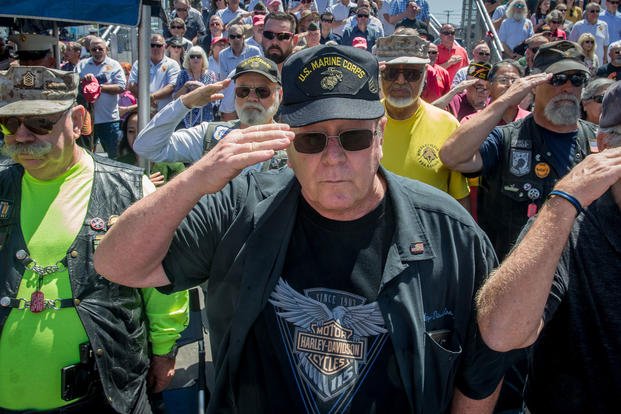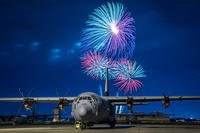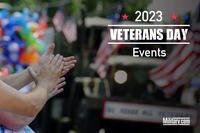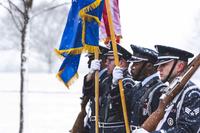What Is Veterans Day?
Veterans Day gives Americans the opportunity to celebrate the bravery and sacrifice of all U.S. veterans. However, most Americans confuse this holiday with Memorial Day, according to the Department of Veterans Affairs.
What's more, some Americans don't know why we commemorate our veterans on Nov. 11. It's imperative that all Americans know the history of Veterans Day so that we can honor our former service members properly.
Related:
History of Veterans Day
Veterans Day, formerly known as Armistice Day, was originally set as a U.S. legal holiday to honor the end of World War I, which officially took place on Nov. 11, 1918. In legislation that was passed in 1938, Nov. 11 was "dedicated to the cause of world peace and to be hereafter celebrated and known as 'Armistice Day.'" As such, this new legal holiday honored World War I veterans.
In 1954, after having been through both World War II and the Korean War, the 83rd U.S. Congress -- at the urging of veterans service organizations -- amended the Act of 1938 by striking out the word "Armistice" and inserting the word "Veterans." With the approval of this legislation on June 1, 1954, Nov. 11 became a day to honor American veterans of all wars.
In 1968, the Uniform Holiday Monday Act ensured three-day weekends for federal employees by celebrating four national holidays on Mondays: Washington's Birthday, Memorial Day, Veterans Day and Columbus Day. Under this bill, Veterans Day was moved to the fourth Monday of October. Many states did not agree with this decision and continued to celebrate the holiday on its original date. The first Veterans Day under the new law was observed with much confusion on Oct. 25, 1971.
Finally on Sept. 20, 1975, President Gerald R. Ford signed a law that returned the annual observance of Veterans Day to its original date of Nov. 11, beginning in 1978. Since then, the Veterans Day holiday has been observed on Nov. 11.
Celebrating the Veterans Day Holiday
If the Nov. 11 holiday falls on a non-workday -- Saturday or Sunday -- the holiday is observed by the federal government on Monday (if the holiday falls on Sunday) or Friday (if the holiday falls on Saturday). Federal government closings are established by the U.S. Office of Personnel Management. State and local government closings are determined locally, and non-government businesses can close or remain open as they see fit, regardless of federal, state or local government operation determinations.
United States Senate Resolution 143, which was passed on Aug. 4, 2001, designated the week of Nov. 11 through Nov. 17, 2001, as "National Veterans Awareness Week." The resolution calls for educational efforts directed at elementary and secondary school students concerning the contributions and sacrifices of veterans.
The Difference Between Veterans Day and Memorial Day
Memorial Day honors service members who died in service to their country or as a result of injuries incurred during battle. Deceased veterans are also remembered on Veterans Day, but the day is set aside to thank and honor living veterans who served honorably in the military -- in wartime or peacetime.
Here is President Dwight Eisenhower's letter to Harvey V. Higley, administrator of Veterans' Affairs, designating him chairman of the Veterans Day National Committee:
The White House Office
October 8, 1954
Dear Mr. Higley:
I have today signed a proclamation calling upon all of our citizens to observe Thursday, November 11, 1954 as Veterans Day. It is my earnest hope that all veterans, their organizations, and the entire citizenry will join hands to insure [sic] proper and widespread observance of this day. With the thought that it will be most helpful to coordinate the planning, I am suggesting the formation of a Veterans Day National Committee. In view of your great personal interest as well as your official responsibilities, I have designated you to serve as Chairman. You may include in the Committee membership such other persons as you desire to select and I am requesting the heads of all departments and agencies of the Executive branch to assist the Committee in its work in every way possible.
I have every confidence that our Nation will respond wholeheartedly in the appropriate observance of Veterans Day, 1954.
Sincerely,
DWIGHT D. EISENHOWER
For more information and frequently asked questions, visit the VA website.
Things You Don't Know About Veterans Day
- It's "Veterans Day," not "Veteran's Day," for a good reason. The lack of the apostrophe might seem like a semantic choice, but it has a definite and deliberate meaning. According to the U.S. Department of Veteran Affairs, Veterans Day is not a day that belongs to veterans, it is a day for honoring veterans directly in front of us right now.
- Veterans Day used to be celebrated on the fourth Monday of October. In 1968, Congress passed the Uniform Monday Holiday Act, which stated that Washington's Birthday, Memorial Day, Columbus Day, and Veterans Day would all be celebrated on Mondays. The reason for doing so was to create three-day weekends, which hopefully encouraged travel and other recreational activities that would help stimulate the economy. However, many states did not agree with the change, particularly for Veterans Day, which holds significant historic and patriotic significance. And so on Sept. 20 1975, President Gerald Ford signed Public Law 9497, which returned the observance of Veterans Day to Nov. 11, beginning in 1978.
- Armistice Day became Veterans Day in 1954. Although today we all know it as Veterans Day. Nov. 11 was originally called "Armistice Day" in recognition of the armistice agreement that ended WWI on Nov. 11, 1918. While WWI was called "the war to end all wars," it failed to do just that. By the early 1950s, millions of Americans had served in WWII in the Korean War. So, in an attempt to be more inclusive and honor this younger generation of veterans service, Armistice Day was changed to Veterans Day on June 1, 1954.
- Marines celebrate their service birthday and Veterans Day with a 96-hour liberty. Nov. 10 marks the Marine Corps birthday, an event that is generally celebrated with a traditional ball and a cake-cutting ceremony. Since this special day falls the day before Veterans Day, many Marines celebrate both holidays together with a 96-hour liberty period.
- A group once pushed to rename then-Armistice Day as "Mayflower Day." After the outbreak of WWII and the revelation that WWI did not end all wars, the idea of commemorating Armistice Day began to fall out of favor with a small group of Americans led by Francis Carr Stifler of the American Bible Society. The group proposed that Armistice Day be officially replaced with Mayflower Day since the signing of the Mayflower Compact took place on Nov. 11, 1620. They argued that this whole name would be far more appropriate, since the Mayflower Compact was the cornerstone upon which the Declaration of Independence and the Bill of Rights stood. Of course, the group's ideas did not catch on, and Armistice Day eventually became the Veterans Day that we know today.
Read next: Understanding Military Time
Stay On Top of Your Veteran Benefits
Military benefits are always changing -- keep up with everything from pay to health care by signing up for a free Military.com membership, which will send all the latest benefits straight to your inbox, as well as give you access to up-to-date pay charts and more.
















